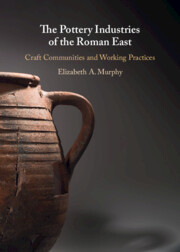370 results
Cross-Border ‘Data Adequacy’ Frameworks under GATS Article VII: Aligning WTO Members’ Rights to Protect Personal Data with Their International Commitments
-
- Journal:
- World Trade Review , First View
- Published online by Cambridge University Press:
- 21 April 2025, pp. 1-27
-
- Article
-
- You have access
- Open access
- HTML
- Export citation
Chapter 6 - On Manipulation in Politics
- from Part II - The Ethics
-
- Book:
- The Concept and Ethics of Manipulation
- Published online:
- 10 April 2025
- Print publication:
- 17 April 2025, pp 197-222
-
- Chapter
- Export citation
Social preferences under the shadow of the future
-
- Journal:
- Experimental Economics ,
- Published online by Cambridge University Press:
- 14 April 2025, pp. 1-21
-
- Article
-
- You have access
- Open access
- HTML
- Export citation
Ingroup favoritism in cooperation in a dynamic intergroup context: Data from Israeli professional volleyball players
-
- Journal:
- Judgment and Decision Making / Volume 20 / 2025
- Published online by Cambridge University Press:
- 08 April 2025, e21
-
- Article
-
- You have access
- Open access
- HTML
- Export citation

The Pottery Industries of the Roman East
- Craft Communities and Working Practices
-
- Published online:
- 20 March 2025
- Print publication:
- 03 April 2025
The rise of cooperation in correlated matching prisoners dilemma: An experiment
-
- Journal:
- Experimental Economics / Volume 10 / Issue 1 / March 2007
- Published online by Cambridge University Press:
- 14 March 2025, pp. 3-20
-
- Article
- Export citation
Centrality and cooperation in networks
-
- Journal:
- Experimental Economics / Volume 22 / Issue 1 / 15 March 2019
- Published online by Cambridge University Press:
- 14 March 2025, pp. 178-196
-
- Article
- Export citation
Strong, bold, and kind: self-control and cooperation in social dilemmas
-
- Journal:
- Experimental Economics / Volume 20 / Issue 1 / March 2017
- Published online by Cambridge University Press:
- 14 March 2025, pp. 44-69
-
- Article
- Export citation
Do economic inequalities affect long-run cooperation and prosperity?
-
- Journal:
- Experimental Economics / Volume 23 / Issue 1 / March 2020
- Published online by Cambridge University Press:
- 14 March 2025, pp. 53-83
-
- Article
- Export citation
Is it what you say or how you say it?
-
- Journal:
- Experimental Economics / Volume 27 / Issue 4 / September 2024
- Published online by Cambridge University Press:
- 14 March 2025, pp. 874-921
-
- Article
-
- You have access
- Open access
- HTML
- Export citation
Revisiting strategic versus non-strategic cooperation
-
- Journal:
- Experimental Economics / Volume 15 / Issue 1 / March 2012
- Published online by Cambridge University Press:
- 14 March 2025, pp. 24-43
-
- Article
-
- You have access
- Open access
- Export citation
An examination of the effect of messages on cooperation under double-blind and single-blind payoff procedures
-
- Journal:
- Experimental Economics / Volume 16 / Issue 4 / December 2013
- Published online by Cambridge University Press:
- 14 March 2025, pp. 597-607
-
- Article
- Export citation
On the Design of Peer Punishment Experiments
-
- Journal:
- Experimental Economics / Volume 8 / Issue 2 / June 2005
- Published online by Cambridge University Press:
- 14 March 2025, pp. 107-115
-
- Article
- Export citation
Voting on the threat of exclusion in a public goods experiment
-
- Journal:
- Experimental Economics / Volume 23 / Issue 1 / March 2020
- Published online by Cambridge University Press:
- 14 March 2025, pp. 84-109
-
- Article
-
- You have access
- Open access
- HTML
- Export citation
Do people who care about others cooperate more? Experimental evidence from relative incentive pay
-
- Journal:
- Experimental Economics / Volume 20 / Issue 4 / December 2017
- Published online by Cambridge University Press:
- 14 March 2025, pp. 809-835
-
- Article
- Export citation
Economic Games Among the Amazonian Tsimane: Exploring the Roles of Market Access, Costs of Giving, and Cooperation on Pro-Social Game Behavior
-
- Journal:
- Experimental Economics / Volume 7 / Issue 1 / February 2004
- Published online by Cambridge University Press:
- 14 March 2025, pp. 5-24
-
- Article
- Export citation
On the performance of rule-based contribution schemes under endowment heterogeneity
-
- Journal:
- Experimental Economics / Volume 21 / Issue 1 / March 2018
- Published online by Cambridge University Press:
- 14 March 2025, pp. 180-204
-
- Article
- Export citation
Hot vs. Cold: Sequential Responses and Preference Stability in Experimental Games
-
- Journal:
- Experimental Economics / Volume 2 / Issue 3 / March 2000
- Published online by Cambridge University Press:
- 14 March 2025, pp. 227-238
-
- Article
- Export citation
The effects of endowment size and strategy method on third party punishment
-
- Journal:
- Experimental Economics / Volume 19 / Issue 4 / December 2016
- Published online by Cambridge University Press:
- 14 March 2025, pp. 741-763
-
- Article
- Export citation
Strategy revision opportunities and collusion
-
- Journal:
- Experimental Economics / Volume 22 / Issue 4 / December 2019
- Published online by Cambridge University Press:
- 14 March 2025, pp. 834-856
-
- Article
-
- You have access
- Open access
- HTML
- Export citation


